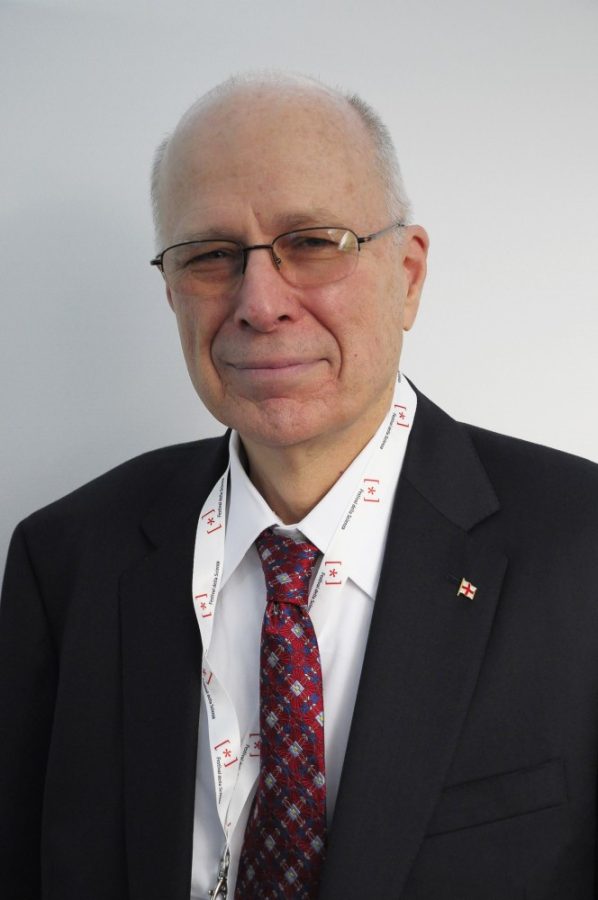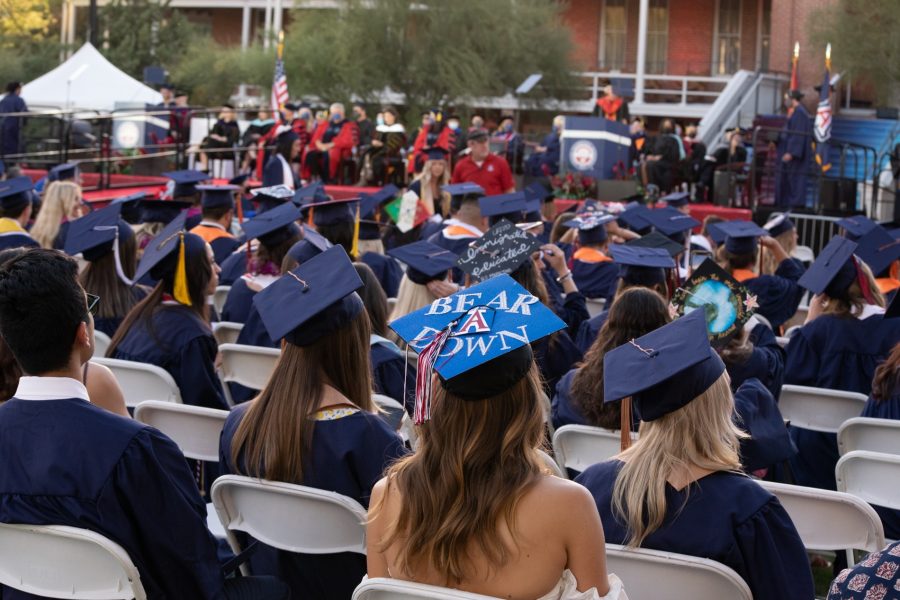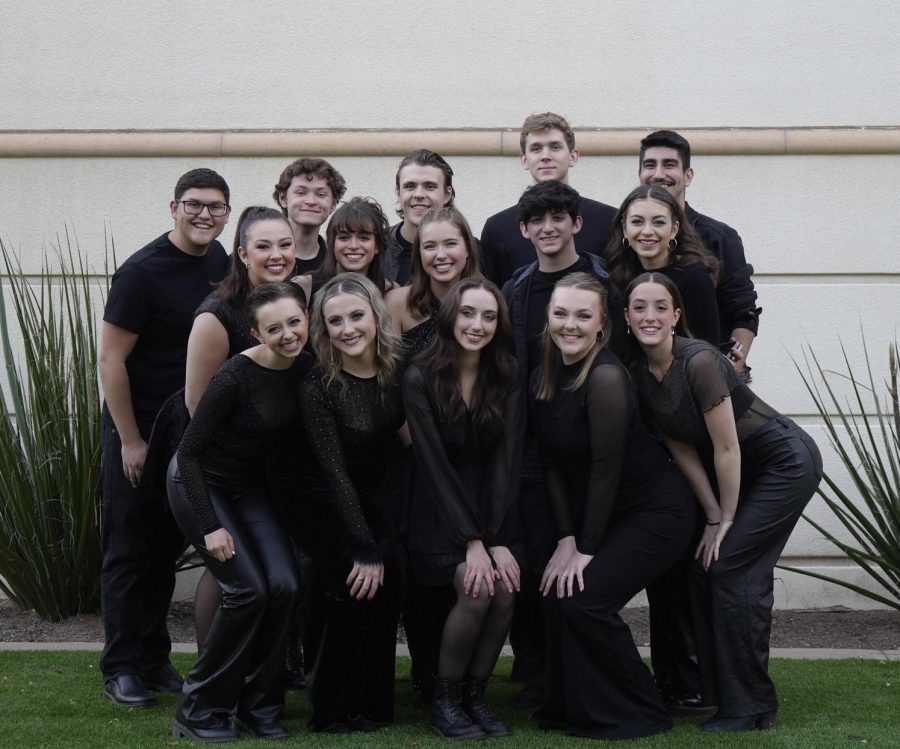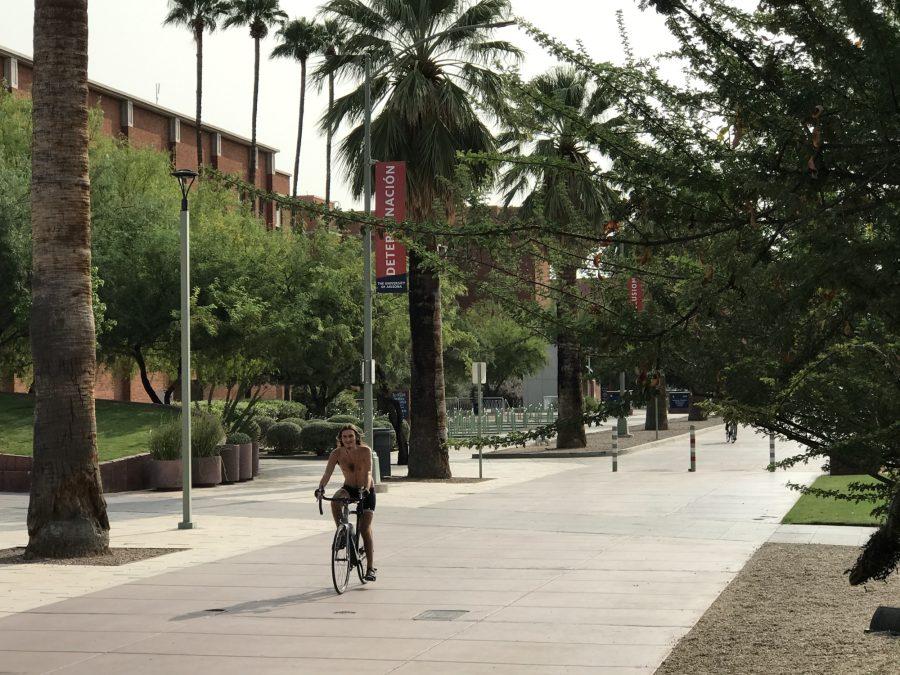U.S. representative Raúl Grijalva said climate change is the greatest danger facing the world right now in his closing speech at the Science Diplomacy and Policy with Focus on the Americas conference in Tucson. Applause erupted from the conference attendees, speakers, panelists and organizers in the audience.
The conference was hosted by the UA from Wednesday, Feb. 22, through Friday, Feb. 24, and drew scientists, students, diplomats and others from around the world. The conference aimed to provide a “state of the art” vision for the future in science diplomacy and policy, according to its website.
Climate change was a central theme on the final day of the conference. A three-person panel, “Climate Change Challenges for the Americas and the Role of Science Diplomacy,” addressed the issue of climate change from scientific and political standpoints.
The panel included researchers Paty Romero Lankao, Diana Liverman and Hem Nalini Morzaria-Luna.
ankao, a senior scientist and head of the Urban Futures initiative at the National Center for Atmospheric Research, began the discussion by explaining three key challenges that scientists face when it comes to climate c hange:
hange:
- The challenge of being relevant to society and decision-making
- The challenge of being credible
- Creating science that is technically sound
The challenge of creating knowledge that does not favor one stakeholder over another
Of her work on the Intergovernmental Panel on Climate Change reports, she said many of the questions that need to be addressed in the future are not only scientific questions, but those with social and political consequences.
RELATED: Flying the friendly skies: UA scientists use airplanes to research climate change
Liverman, a UA regents professor in geography and development and former director of Oxford University’s Environmental Change Institute, began her talk by focusing on the implications of climate change for the Arizonan geographical region in particular.
She took a critical stance on the levels of commitment made during the United Nations Climate Change Conference in Paris in 2015.
I just want to remind us of what we’re facing in this hemisphere,” Liverman said. “We know that if emissions continue with business as usual the region is going to warm by two degrees by the middle of the century, and by more than four degrees centigrade by the end of the century. That’s the lifetime of our children, and we’re going to be facing sea level rise and more extreme events.”
She stressed the need for more serious commitments of reducing carbon emissions in the region and beyond. Even if all commitments made at the Paris conference were fulfilled, it would still mean 3.5 degrees Celsius of continued warming globally, according to Liverman.
“That could be five or six degrees in some parts of our region, including Arizona, which is a hotspot in terms of climate change,” Liverman said.
“I don’t think any other country has the problems of science communication and public perception that the United States has,” Liverman said.
Although global leaders certainly face challenges, Liverman said one way recent science has successfully influenced diplomacy and policy is by bringing climate change vulnerability and adaptation to the forefront of international climate conversation.
She said that the scientific community needs to look further into climate change in relation to a more globalized world.
“Climate change at the other side of the world can affect food prices and prices that our farmers get for their crops,” Liverman said.
RELATED: UA students walk out in protest of President Trump’s climate change vision
Morzaria-Luna, a senior research specialist at the Intercultural Center for the Study of Deserts and Oceans, an organization within the United States and Mexico that focuses on conservation, research and education, was the last speaker in the panel.
She said climate change will have huge impacts not only on fish populations, but also on the fishers who depend them for their livelihoods.
“As climate change affects progress, the importance of science and diplomacy become more important,” Morzaria-Luna said.
She emphasized the need for scientists to be ardent and urgent in their responses toward the increasingly apparent consequences of climate change.
“You can still do relevant and technically sound science that meets the needs of policy makers right away,” she said.
E. William Colglazier, senior scholar in the Center for Science Diplomacy at the American Association for Advancement of Science, was science and technology adviser to the U.S. Secretary of State from 2011-2014 and honorary chair for the conference. He stressed that climate change is one of the defining challenges of our time.
“There are a lot of vested interests related to the issue of our current fossil fuel-based energy system. So it takes a while to galvanize the public and political opinion to deal with them,” he said. “I wish it could’ve been done faster, but at least it’s moving in the right direction.”
Follow Michaela Webb on Twitter.















